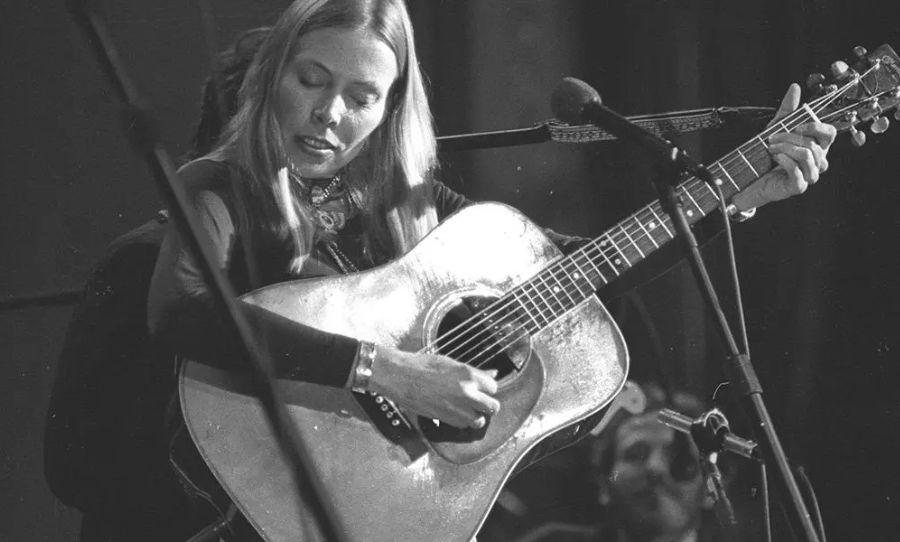We look back at one of the most timely breaths of fresh air to hit the 21st century: Bon Iver’s For Emma, Forever Ago.
It’s one of the greatest folk tales of our generation: a scorned artist shirks the big smoke to escape to the countryside — marinating his woes in his music and re-emerging a year later with his heart poured out on wax. It was the perfect way to open Justin Vernon’s career — a ubiquitous collection of tracks that somehow speak directly to the soul despite their ambiguous lyrics and nostalgic instrumentation.
It stands as a lush and pastoral ode to the early 21st-century desire for escapism, and a breath of fresh air in the smog-covered apocalypse that we didn’t even know we were a part of yet. And even though we’re well over a decade on from its release, For Emma, Forever Ago is an eternal classic and a frighteningly relevant album.

Man Of The Woods
For those who don’t know the legendary folklore tale behind For Emma Forever Ago, Bon Iver began as the solo project of Justin Vernon, an Americana/folk musician hailing from Eau Claire, Wisconsin. In early 2006, Vernon was hit with the holy trifecta of heartbreak: his relationship ended, his previous band, DeYarmond Eddison, went their separate ways, and he was diagnosed with Glandular Fever which left him bedridden for months.
In an emotionally decrepit state, Vernon chose to give himself a period of time to repair, slinking out to an old hunting shack an hour north of his home town to escape all of the noise and 21st-century bullshit that was beginning to snowball.
The world was shrinking in 2006. The internet was a pretty permanent fixture, with portable computing and mobile phones being a clunky yet readily available way of constantly being in touch with the world around you. It was a new and exciting phenomenon in many ways, but the downsides of this always-online world were just as present then as they are now, especially for a guy who had been broken down by his circumstances.
Vernon’s landscape had become a chaotic place of noise and perpetual motion and viewing it as such offers a great perspective as to why he slipped away. The snowy hunting cabin that he moved into was the polar opposite of the North Carolina music scene that he had been circulating in, and in escaping, he was able to do something that many of us don’t.
And it’s one of the most exciting and beautiful things about For Emma — Vernon brings us with him into his lush and snowy world of escapism. With nothing but a guitar, some effects, a rudimentary drum kit, and a Shure SM57 — he is able to perfectly communicate the universal spread of emotions that comes with breaking away, whatever it is that you’re breaking away from.
Forever and Ever Ago
For Emma opens with Flume and instantly we’re sitting in the room with Vernon as he strums away and lacquers us with vocal harmonies. The lo-fi recording and mixing place the instruments in a very interesting place in relation to one another, but the rawness of the master allows the songs to speak incredibly personally to us.
Vernon is reaching deep within himself to find each sound on this record, and the minimal intervention approach to mixing makes it feel like it’s all coming straight from his mouth.
Lump Sum features a glorious vocal arrangement, whose holy implementation of reverb blurs the lines between church and cave — marrying nature and manmade architecture in (what is now) typical Bon Iver fashion. The string scratches between chord changes here are just as much a feature as anything else on this track, layering it with an authentic and homemade tone as the mind wanders to a simpler place.
Skinny Love is a solid campfire belter in a curious, out of key, drop-C tuning, which gives a handcrafted, almost amateur feel to the song — kind of like Vernon had just stumbled upon a guitar, and ran with its tuning instead of fixing it.
It’s a warts-and-all way of songwriting that draws merit from its minor imperfections and makes for a very beautiful soundscape. The Wolves, Creature Fear and Team are all strong folk pieces — full of run-on motifs, and covering the spectrum of energy, whether it be a moment frozen in time or a forward-leaning crescendo into the next song. Together, they make up a collection of mournful and introspective tunes which lament the grief and loss that comes with finally being alone.
However, the themes of For Emma, Forever Ago come full circle in the album’s final two tracks. The titular For Emma sees the record’s energy finally start to pulse outward, with a smattering of horns and slide guitars joining the instrumentation, as Vernon addresses finally coming to terms with his eternal grief.
Heartbreak is all around us and will never end, but he commits to this idea with warmth, rather than indignation. The vocal humming and brass orchestration seem to welcome back his prior sadness in a bittersweet embrace, almost as though we’ve been running, and it’s finally time to return home. And Re: Stacks is a portrait of this return, a solo guitar and vocal ballad which remains aware of the journey, just as much as it looks to the future:
“This is not the sound of a new man, Or crispy realization, It’s the sound of the unlocking and the lift away, Your love will be safe with me”
Clear Water
There’s a weird readjustment period that happens after For Emma finishes, as the real world slowly begins to peek back from where it had been hiding for the past 40 minutes. No longer does everything feel like it has recently been covered by snowfall, the wild birds are no longer singing on the trees outside of your apartment, and as your landscape returns to normal you realise where the true power of this record lies.
It’s utterly transporting in its universal language. With a minimal amount of instruments, some rudimentary recording techniques, and no more than nine songs, not only has Vernon given you that breath of fresh air you’ve been desperately craving — but also addressed the ever-present feelings of loneliness and heartbreak that lie therein.
As we slide deeper into the 21st century, and as the world becomes more and more dystopian, it might feel impossible to free oneself from the chaos of daily life. Even if we were to switch phones off and slip away to a distant hunting cabin, who knows just how much we would miss of what we’ve come to consider as normal?



